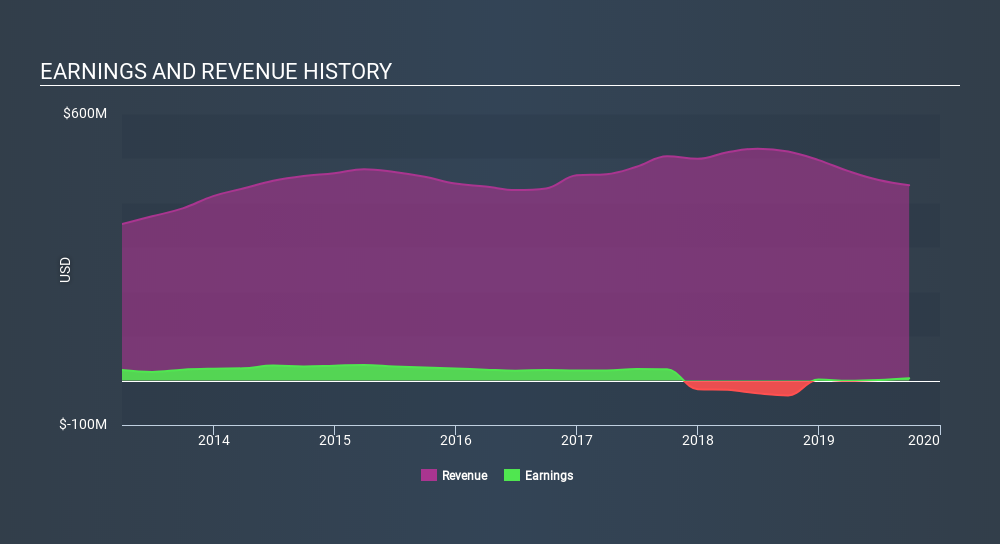- United States
- /
- Auto Components
- /
- NasdaqCM:CAAS
Some China Automotive Systems (NASDAQ:CAAS) Shareholders Have Copped A Big 69% Share Price Drop

Statistically speaking, long term investing is a profitable endeavour. But along the way some stocks are going to perform badly. Zooming in on an example, the China Automotive Systems, Inc. (NASDAQ:CAAS) share price dropped 69% in the last half decade. That's an unpleasant experience for long term holders. We also note that the stock has performed poorly over the last year, with the share price down 32%. Shareholders have had an even rougher run lately, with the share price down 32% in the last 90 days.
View our latest analysis for China Automotive Systems
There is no denying that markets are sometimes efficient, but prices do not always reflect underlying business performance. One flawed but reasonable way to assess how sentiment around a company has changed is to compare the earnings per share (EPS) with the share price.
During five years of share price growth, China Automotive Systems moved from a loss to profitability. Most would consider that to be a good thing, so it's counter-intuitive to see the share price declining. Other metrics might give us a better handle on how its value is changing over time.
In contrast to the share price, revenue has actually increased by 1.3% a year in the five year period. A more detailed examination of the revenue and earnings may or may not explain why the share price languishes; there could be an opportunity.
The company's revenue and earnings (over time) are depicted in the image below (click to see the exact numbers).

It's probably worth noting that the CEO is paid less than the median at similar sized companies. It's always worth keeping an eye on CEO pay, but a more important question is whether the company will grow earnings throughout the years. This free report showing analyst forecasts should help you form a view on China Automotive Systems
A Different Perspective
While the broader market gained around 20% in the last year, China Automotive Systems shareholders lost 32%. Even the share prices of good stocks drop sometimes, but we want to see improvements in the fundamental metrics of a business, before getting too interested. Regrettably, last year's performance caps off a bad run, with the shareholders facing a total loss of 21% per year over five years. Generally speaking long term share price weakness can be a bad sign, though contrarian investors might want to research the stock in hope of a turnaround. I find it very interesting to look at share price over the long term as a proxy for business performance. But to truly gain insight, we need to consider other information, too. Consider for instance, the ever-present spectre of investment risk. We've identified 3 warning signs with China Automotive Systems , and understanding them should be part of your investment process.
If you are like me, then you will not want to miss this free list of growing companies that insiders are buying.
Please note, the market returns quoted in this article reflect the market weighted average returns of stocks that currently trade on US exchanges.
If you spot an error that warrants correction, please contact the editor at editorial-team@simplywallst.com. This article by Simply Wall St is general in nature. It does not constitute a recommendation to buy or sell any stock, and does not take account of your objectives, or your financial situation. Simply Wall St has no position in the stocks mentioned.
We aim to bring you long-term focused research analysis driven by fundamental data. Note that our analysis may not factor in the latest price-sensitive company announcements or qualitative material. Thank you for reading.
About NasdaqCM:CAAS
China Automotive Systems
Through its subsidiaries, manufactures and sells automotive systems and components in the People’s Republic of China, the United States, and internationally.
Flawless balance sheet and slightly overvalued.
Similar Companies
Market Insights
Community Narratives



